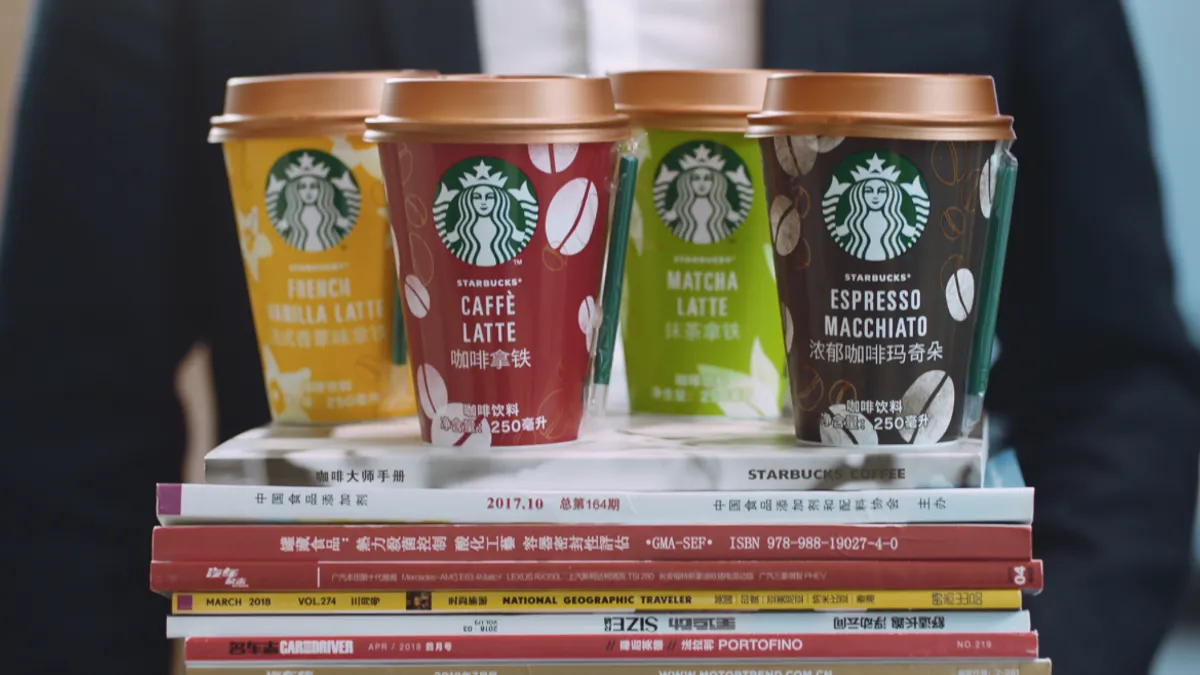Dive Brief:
- Starbucks is ramping up its digital push in China to elevate in-store experiences and drive customer loyalty, the company revealed in a press release about its first-ever China Investor Conference. The number of Starbucks loyalty members in China who have been active in the past 90 days has nearly tripled over the past four years, with 90% of users engaging with the company’s app. China is also one of Starbucks’ leading markets for digital payments, with 60% of sales coming from digital payments while 80% of sales are cashless.
- Starbucks said it is bringing its “Say it with Starbucks” social gifting feature to Alibaba following its launch 18 months agon on WeChat,
- The chain also said it sees more opportunities for augmented reality to enhance the customer and partner connection after building an AR experience at the Starbucks Reserve Roastery in Shanghai and testing the technology at its main stores during Chinese New Year in February.
Dive Insight:
Starbucks wants to build deeper digital customers relationships in China to build a foundation for introducing new features like personalization, Mobile Order and Pay and delivery service. Besides being a large market, China has the most innovative mobile ecosystem out of all the markets where the chain operates globally, according to the company. This makes China a good location for Starbucks to experiment with new digital strategies, like social gifting and AR, that could eventually be introduced in other markets.
China has become an important market for Starbucks. About 15% of the company’s revenue, about $3.2 billion, came from China and the Asia Pacific markets in fiscal 2017, according to a Bloomberg analysis. Starbucks plans to double its number of stores in China to 6,000 by the end of fiscal year 2022 at a time when its sales have been lackluster in the U.S., where same-store sales grew just 2% during Q2 2018 and customer traffic was flat, per Bloomberg. The company is also launching a line of ready-to-drink beverages in China and partnering with Nestle to bring more packaged Starbucks products into Chinese stores.
More broadly, Starbucks continues to ramp up its digital rewards program, which has been an important sales driver for the company. In the U.S., where the coffee chain faces more competition from smaller, locally-owned coffee shops, Starbucks announced plans to focus on afternoon traffic and encourage those customers, most of whom are not rewards members, to sign up for the program.
The company has also been eyeing ways to incorporate emerging technology into its product offering. Along with the augmented reality experiences in China, Starbucks recently debuted voice-enabled ordering in South Korea using Bixby, Samsung’s intelligent assistant. The voice-ordering features are linked to the My Starbucks Rewards app and let customers speak to a virtual barista to order individualized beverages.














